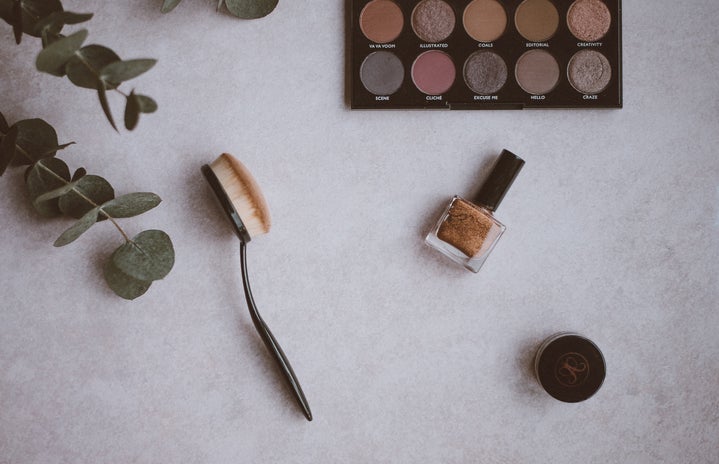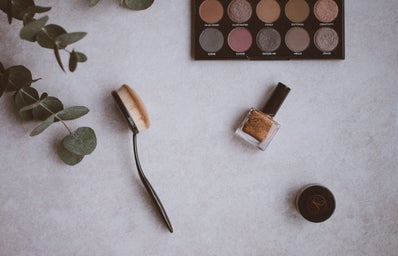People hear the word acid in skincare, they think it’s going to be harsh or too strong for their skin. That’s not the case. This article is going to explain the four main skincare acids, and why you should add them to your routine.
Glycolic Acids
Glycolic Acid is honestly one of my all-time favorite skincare ingredients. It does the most for your skin and is so easily accessible.
A Little Background
It is an AHA (alpha hydroxyl acid) I know the idea of using something labeled as acid on your skin can be scary for some. And I totally get it, but it is important to know that this product wouldn’t be on the market if it could harm your skin. However, if you use a product containing glycolic acid and your skin burns, don’t fret! It is neutralized with water.
Why glycolic acid?
-Glycolic Acid is mostly an exfoliant. It’s biggest selling point is that it penetrates deeper to exfoliate more than other products. It exfoliates dead skin cells
-It stimulates collagen production and increases the cell turn over rate. Because it’s exfoliating deeper than most products, it’s stimulating fibroblasts which stimulates collagen production
-This ingredient gives you an even skin tone that is nice and smooth. Also, it preparing your skin for the rest of your products. Because it is exfoliating the dead skin cells it will allow the rest of your skin care products penetrate deeper.
Is Glycolic Acid For Me?
Probably, but it isn’t for everyone. People ho do best with it are people with normal, combo, or oily skin. However, I have normal to dry skin and I use a glycolic acid toner every night. It depends totally on you. Patch test always.
How do I start?
Definitely introduce glycolic acid through a toner. There are so many great options. Pixi Glow Tonic is amazing for the price point. The Ordinary Glycolic Acid 7% toning Solution is my holy grail. Both are super affordable and the results are amazing
To know if the glycolic acid will be effective: look at the pH.
To know if the glycolic acid will be effective: look at the pH. Neutral pH is 7. Ideal skin pH is 4.5-6. The effective glycolic acid pH is 3.5-4
Lactic Acid
A Little Background
Lactic Acid a great alternative chemical exfoliant for those with super dry and sensitive skin. It is not as harsh as glycolic acid and doesn’t penetrate as deep as glycolic acid does. It is an AHA. A synthetic lactic acid is most common.
Why Lactic Acid?
-Like glycolic acid it is an exfoliant and will give you smoother, even skin
-The reason it’s better for those with dry and sensitive skin is because it increases water retention and increases the ceramides in your skins protective barrier.
-gentle exfoliant
Is Lactic Acid For Me?
Lactic Acid is good for all skin types. However, you should always patch test new products.
How do I start?
Introduce through a serum, or a resurfacing pad (check label- some of the contain it). I recommend Good Genes by Sunday Riley or The Ordinary Lactic Acid 5%
Salicylic Acid
A Little Background:
Salicylic Acid is a BHA (beta hydroxy acid). & a hot take: This is one of the most overused skincare ingredients- but we’ll get more into that later.
Why Salicylic Acid?
-Salicylic acid is soluble – meaning it actually penetrates your pores and will unclog and exfoliate them
-Great for acne prone skin
-Great spot treatment for pimples
Is Salicylic Acid for me?
Maybe, but like I previously stated it is overused. Not for people with dry skin, unless used as a spot treatment. It can make skin feel tight and dry because it is stopping sebum secretion – basically it results in the skin not producing enough oil. Additionally, it doesn’t work on cystic acne.
How do I start?
There are multiple ways to use. To introduce as a permanent part of your regimen go for a scrub -The Neutrogena Scrub with salicylic acid is good. The Mario Badescu drying lotion spot treatment is a great product to use for a spot treatment
Hyaluronic acid
A Little Background:
This is an acid that doesn’t exfoliate at all. It’s a sugar molecule. It is a humectant, and will hydrate the skin. It is naturally found in our skin. It is usually a synthetic version that we find in our skincare.
Why Hyaluronic Acid?
-
It holds 1,000 times its weight in water.
-
Hydrates the skin.
-
Makes the skin feel plump as it holds water
Is Hyaluronic Acid for me?
It’s a great skincare ingredient for all skin types – oily skin needs hydration too. However, it is most beneficial for those with dry skin.
Where do I start?
A serum or a moisturizer is the best way to introduce this into your routine. The Neutrogena HydroBoost line is great for hyaluronic acid.


